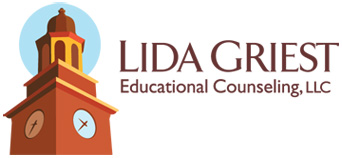This past April I had the opportunity to attend the SACAC conference in Memphis, Tennessee. I had never stayed at the Peabody Hotel, so it was a wonderful experience for me. If you have never spent any time in Memphis, you need to do it. The Peabody is a magnificent hotel with some of the most beautiful flower arrangements I have ever seen. It is quite fun to see the ducks march into the lobby at 11:00 am and then march back to their home in a room of the hotel at 5:00 pm.
The first speaker at the conference was Dr. Luther Ivory, a professor of religion at Rhodes College. Dr. Ivory spoke to the room of educational consultants calling us “intellectual matchmakers”. He talked about the importance of our profession in helping young people find the college that is suitable to him/her and how we must evaluate our own career in order to be the best we can be. He actually called our professional a “calling.” Each of us approaches our job with our own individual fingerprint, and the three primary elements that make up our “calling” are: 1. Taking a risk, 2. Committing to our students and their parents, and 3. Always putting service first.
Dr. Ivory gave us five points to consider as we evaluate our own work. The first is that “self definition is key”. I must KNOW who I am in order to help my families. I need to be aware of my strengths and weakness as as well as my biases. The second point is to “never quit.” He encouraged us to follow the direction of Winston Churchill when he said, “Never, ever give up — even when you are tired.” Dr. Ivory went on to suggest that we embrace the coach in each of us; he said an educational consultant should have the ability to encourage her students to take the risk to be (and to do) what they want to be. We need to be a model, a mentor and a motivator at all times. The fourth point was an unusual one, but one that consultants must pursue; we must avoid the “Lone Ranger Syndrome.” Since many of us are in private practices without other consultants, we need to communicate with other consultants so our opinions don’t become stagnant. Finally Dr. Ivory emphasized, “Greatness lives in all of us.” It is our charge to look at each of our students and search for his/her individual greatness. Each and every day when I walk into my office, my primary objective is to listen, learn and assist each student to identify his/her own greatness in this world.
Dr. Ivory’s final words had a tremendous impact on me. He said, “The clients don’t care how much you know as much as how much you care.”
